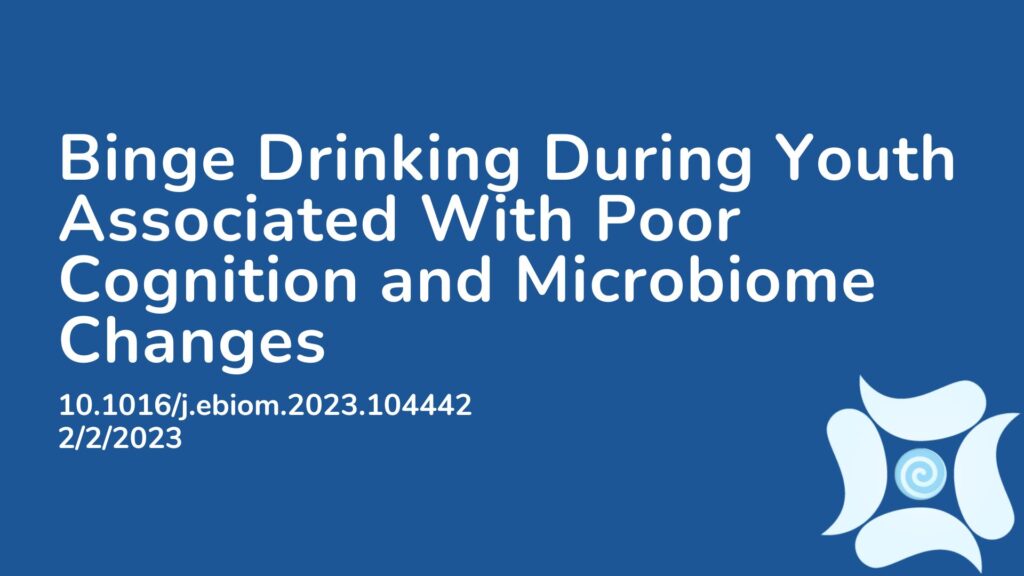Summary:
Binge drinking is the most common pattern of alcohol consumption during adolescent years in western counties. In Australia, close to one third of adolescents aged 19 and below are reported to binge drink at least once per week. Binge drinking is associated with cognitive decline, increased risk of developing alcohol abuse disorder later on in life, and recently research has shown binge drinking may negatively alter the gut microbiome. The aim of this study was to examine any links between gut microbiome changes caused by binge drinking and cognition, as well as cravings for alcohol later on in life. The results demonstrated that binge drinking was associated with specific microbiome alterations and that these alterations were associated with an urge to consume alcohol, as well as poor social cognition, specifically a reduced ability to recognise emotions. These findings are relevant as they may provide a new intervention angle aimed at improving education around the way in which adolescents consume alcohol.
Abstract:
Background: Binge drinking is the consumption of an excessive amount of alcohol in a short period of time. This pattern of consumption is highly prevalent during the crucial developmental period of adolescence. Recently, the severity of alcohol use disorders (AUDs) has been linked with microbiome alterations suggesting a role for the gut microbiome in its development. Furthermore, a strong link has emerged too between microbiome composition and socio-emotional functioning across different disorders including AUD. The aim of this study was to investigate the potential link (and its predictive value) between alcohol-related altered microbial profile, social cognition, impulsivity and craving. Methods: Young people (N = 71) aged 18–25 reported their alcohol use and underwent a neuropsychological evaluation. Craving was measured at baseline and three months later. Diet was controlled for. Blood, saliva and hair samples were taken for inflammatory, kynurenine and cortisol analysis. Stool samples were provided for shotgun metagenomic sequencing and short-chain fatty acids (SCFAs) were measured. Findings: Binge drinking was associated with distinct microbiome alterations and emotional recognition difficulties. Associations were found for several microbiome species with emotional processing and impulsivity. Craving showed a strong link with alterations in microbiome composition and neuroactive potential over time. Interpretation: In conclusion, this research demonstrates alterations in the gut microbiome of young binge drinkers (BDs) and identifies early biomarkers of craving. Associations between emotional processing and microbiome composition further support the growing literature on the gut microbiome as a regulator of social cognition. These findings are of relevance for new gut-derived interventions directed at improving early alcohol-related alterations during the vulnerability period of adolescence.
Article Publication Date: 2/2/2023
DOI: 10.1016/j.ebiom.2023.104442



